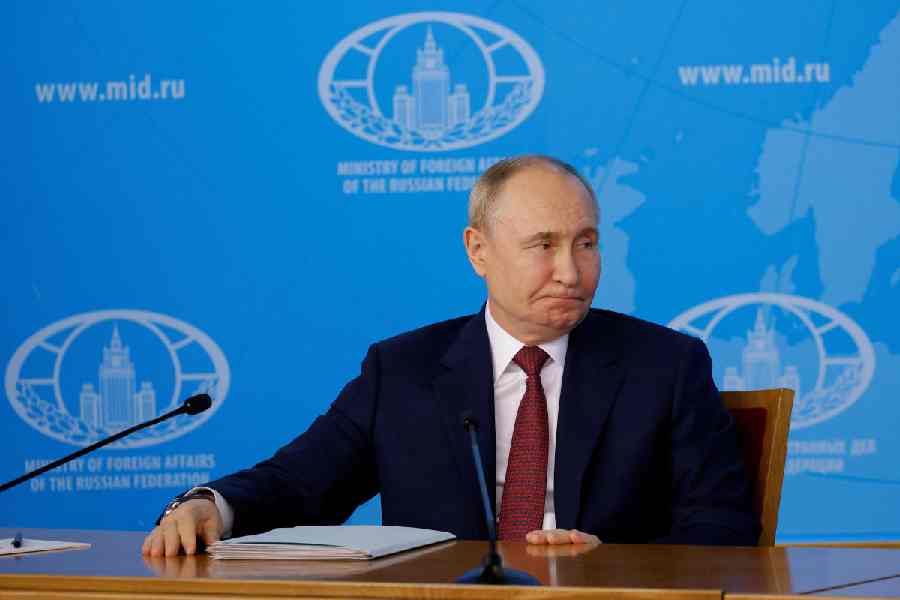Negative feelings about President Vladimir V. Putin have appeared to increase across Russia since Ukrainian troops pushed into Russian territory two weeks ago, according to a firm that tracks attitudes in the country by analysing social media and other Internet postings.
While news outlets in Russia have tried to put a more positive spin on the developments in the war, focusing on the Russian government’s humanitarian response, some Russian social media users have expressed discontent.
Many of the online postings, according to the analysis by FilterLabs AI, say Ukraine’s advance is a failure of the Russian government and, more specifically, Putin.
It is difficult to accurately gauge public opinion in Russia, or any other authoritarian country, because people responding to polls often give answers that they think the government wants. To address that shortcoming, FilterLabs tracks comments on social media sites, Internet postings and news media sites, using a computer model to analyse sentiments expressed by ordinary Russians.
Positive attitudes about Putin took a hit last year after a short-lived armed rebellion led by Yevgeny Prigozhin, the head of a Russian paramilitary force. But the shift in sentiment has appeared sharper in the days since Ukrainian troops launched their incursion into the Kursk region of western Russia.
“Putin’s response to the incursion was seen as inadequate at best and insulting at worst,” said Jonathan Teubner, the chief executive of FilterLabs.
Attitudes towards Putin remain more positive in Moscow, where Russia keeps a firmer hand on the news media and public debate. But views of Putin have soured even there, though not as quickly as elsewhere in the country. In Russia’s outlying regions, frustration with the Kremlin is growing, according to the analysis.
American officials cautioned that it was too early to know whether any damage to Putin’s reputation would be lasting. Putin’s standing in Russia quickly rebounded after Prigozhin ended his rebellion, the officials said, and the Russian President has consistently demonstrated an ability to manipulate the public view of himself.
Still, a permanent loss of popularity could complicate the Kremlin’s ability to wage war in Ukraine.
“It is right now difficult to determine the effect of the Ukrainian counteroffensive,” Teubner said. “But it is clear that is shocking and, for Putin, embarrassing. Kremlin propaganda, spin, and distraction can only do so much in the face of bad news that is widely discussed across Russia.”
Sentiment towards Putin has fallen sharply in the regions of Russia where the Kremlin focuses its military recruiting efforts. The Kremlin’s recruiting strategy depends on its ability to manage perception of the war.
New York Times News Service










